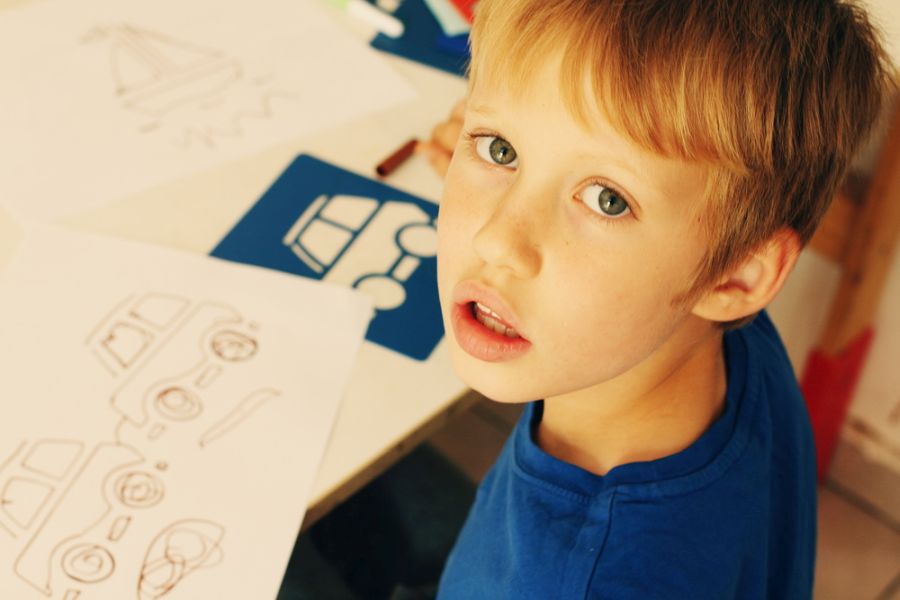Each child is unique and their young minds can be compared to sponges which are thirsty for new information. There are children who have exceptional intelligence and abilities compared to others their age. To develop to their full potential, these children need a special educational approach and curriculum.
In many cases, gifted children aren’t exactly doing well in school, they show a lack of interest and motivation and often experience social conflicts in the classroom environment. This happens because gifted children acquire and process information differently and the lack of an intellectual challenge can result in hindrance of their abilities and even psychological damage. The mismatch between their needs and standardized educational methods (designed for an average student) causes gifted children to lose interest, become bored, and to fall behind in their studies. They often start clowning around in class, misbehave, and get in trouble with teachers.
Usually, academic grades at school serve as a good assessment for a child’s intelligence. However, with gifted children, academic grades cannot always give an indication of the child’s giftedness. Typical signs of gifted children are: A greater vocabulary than other children of the same age, fascination with books, good memory, interest and ability to learn advanced math and science concepts, high amounts of energy and reduced need for sleep, high sensitivity to criticism or anger, being “odd” and unconventional in certain ways.
Yet, all these signs can mean many different things and the only reliable way of determining giftedness is child IQ testing. There is a number of accurate IQ test options available, and the composition of these tests depend on the age and objective of testing. The most popular among psychologists are Wechsler Preschool and Primary Scale of Intelligence (WPPSI), Cognitive Abilities Test (COGAT), Terra Nova Test of Cognitive Skills, Stanford Binet, Woodcock-Johnson Test of Cognitive Abilities, Otis Lennon, NNAT-Individual and -Multilevel Forms, STAR Math Enterprise, STAR Reading Enterprise, Gifted and Talented Evaluation Scale (GATES), Canadian Cognitive Abilities Test (CCAT), etc.
Why is testing important?
A lot of times, before the giftedness of certain children is identified, they exhibit academic problems like poor class performance (in terms of grades and interaction), a short attention span, and lack of interest in class activities.
Being a gifted child affects how a child grows up. Because they think differently from other children around them, it may lead to their being outcasted. Sometimes, they may even feel that there is something wrong with them. When trying to adjust, some of these gifted children may bring themselves down to the level of the children around them with the hopes of fitting in and being normal, thus hindering their path to reaching their full potential.
Spotting a gifted child may difficult to the untrained eye, which is why parents who have a suspicion that their child has a set of special skills or is advanced compared to other children their age should have professionals such as educators and child psychologists check the strengths of their child.
A gifted child needs proper support, guidance, understanding, and attention from his or her parents and teachers. A gifted child would appreciate learning all about the world around him without having to feel being held back by being placed in the wrong academic program.
When a child is determined to be gifted, parents and educators may discuss proper educational steps, such as enrolling them in a different program, or having supplementary and enrichment programs that would help aid the personal growth of the child.
Testing a child for giftedness helps determine which level or curriculum would be best for the child, and cater to the academic needs of a child while developing him socially as well. Awareness of giftedness plays a big role on how a child adjusts to the activities and the people around him. Also, knowing that a child is gifted makes it a bit easier for the parents to understand how to best foster their child’s unique skills.
If your child is identified as gifted, you may want to join Mensa BrightKids Facebook group, which is a discussion forum for parents and teachers interested in raising and educating gifted children. American Mensa has now more than 2800 members under the age of 18, with the youngest being only 3 years old. They even have special interest group for teenagers (TeenSIG), where gifted teens can connect with like-minded friends.

